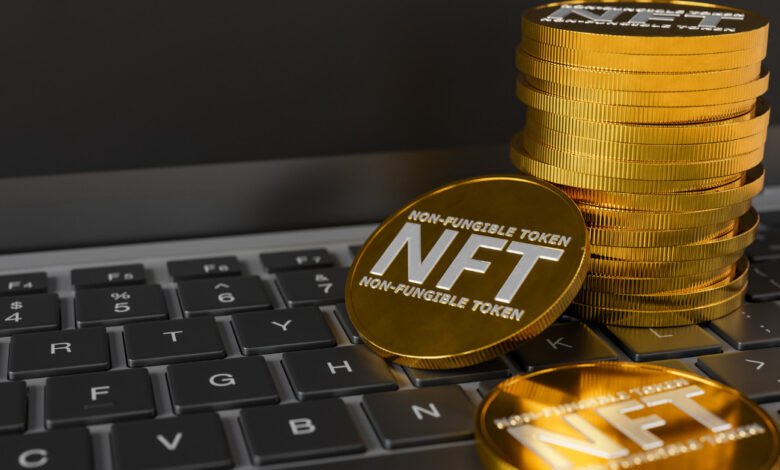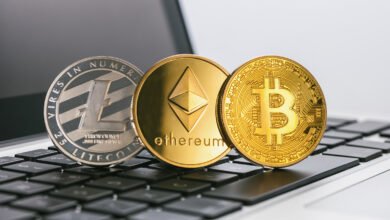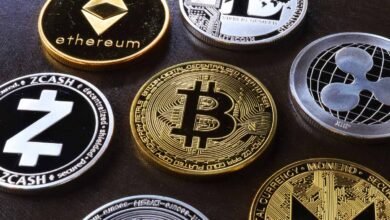What is an NFT: Comprehensive Guide

what is an nft? Non-fungible commemoratives, or NFTs, have taken the digital world by storm. But what exactly are they? Simply put, NFTs are unique digital assets representing ownership of real-world items, such as, art, music, or virtual real estate. Unlike cryptocurrencies like Bitcoin, which are fungible (meaning they can be exchanged for one another), NFTs are one-of-a-kind and cannot be replaced.
What is an NFT?
NFTs, or non-fungible tokens, are unique digital assets representing ownership of real-world items such as art, music, or even virtual real estate. Unlike cryptocurrencies like Bitcoin, each NFT is one-of-a-kind and cannot be exchanged for another.
Why are NFTs so popular?
NFTs have gained immense popularity in recent years, especially within the art world. They’ve provided artists with a new way to monetize their work, and collectors with a unique opportunity to own one-of-a-kind digital assets. The NFT market experienced explosive growth in 2021, with billions of dollars’ worth of NFTs being traded.
How Do NFTs Work?
NFTs, or non-fungible tokens, are unique digital assets that are verified and secured by blockchain technology. Think of them as digital certificates of authenticity for various items, from artwork and music to tweets and virtual real estate.
Blockchain: The Foundation of NFTs
At the core of every NFT is a blockchain, a decentralized public ledger that records transactions across many computers. This technology ensures that each NFT is one-of-a-kind and cannot be duplicated. The Ethereum blockchain is the most commonly used platform for creating and trading NFTs, although other blockchains have also emerged.
What Can Be an NFT?
NFTs can represent virtually anything digital. Some common examples include:
- Digital art: Paintings, drawings, and animations.
- Music: Songs, albums, and sound clips.
- Collectibles: Virtual trading cards, in-game items, and limited-edition sneakers.
- Virtual real estate: Land in virtual worlds like the metaverse.
- Memorable moments: Tweets, blog posts, or other digital content that holds sentimental value.
Why Are NFTs Unique?
- Scarcity: Unlike traditional digital files that can be easily copied and pasted, NFTs are unique and scarce.
- Ownership: NFTs provide proof of ownership on the blockchain, ensuring that the original creator or owner can be verified.
- Authenticity: Blockchain technology prevents counterfeiting and ensures the authenticity of NFTs.
How is the price of NFTs determined?
Unlike traditional assets like stocks or bonds, the value of NFTs is primarily driven by market demand rather than fundamental or technical analysis. This means that an NFT’s price is essentially what someone is willing to pay for it. Factors such as the artist’s reputation, the rarity of the NFT, and overall market sentiment can significantly influence its price.
It’s important to note that NFTs can fluctuate in value over time, and there’s no guarantee that an NFT will appreciate. In fact, many NFTs are resold for less than their original purchase price, or they may become virtually worthless if there’s no demand for them.
How to Trade NFTs?
Non-fungible tokens (NFTs) have taken the digital world by storm, offering unique opportunities for investors and collectors. But how exactly do you buy and sell these digital assets? Let’s break down the process.
- Choosing the Right Marketplace: The first step is to select a reputable NFT marketplace. These platforms allow you to buy, sell, and trade NFTs. Look for marketplaces with a wide range of NFTs, low fees, and a strong security track record.
- Creating an Account and Funding It: Once you’ve chosen a marketplace, you’ll need to create an account and fund it with the cryptocurrency required for transactions, typically Ethereum.
- Selecting NFTs: With your account set up, you can start browsing through the available NFTs. Consider factors like the artist, rarity, and potential future value when making your selection.
- Completing the Purchase: To purchase an NFT, simply follow the platform’s guidelines. This usually involves placing a bid or buying it at the listed price. Once the sale is verified, the NFT will be added to your digital portmanteau.
- Understanding Ownership: When you buy an NFT, you’re essentially purchasing a unique digital asset. Ownership is recorded on a blockchain, providing a verifiable record of who owns what.
What are the most popular NFT marketplaces?
When diving into the world of non-fungible tokens (NFTs), choosing the right marketplace is crucial. Here are some of the most popular platforms where you can buy, sell, and trade NFTs:
- OpenSea: Often referred to as the “eBay of NFTs,” OpenSea offers a vast array of digital assets, from art and collectibles to gaming items. Users can easily browse and filter NFTs based on various criteria, making it a great place to discover new artists and emerging trends.
- Nifty Gateway: Known for its curated selection of high-quality digital art, Nifty Gateway is a popular choice for collectors seeking unique and exclusive NFTs. The platform frequently collaborates with renowned artists to offer limited edition drops.
- Rarible: This community-driven marketplace empowers creators to mint and sell their own NFTs. Rarible’s governance token allows users to vote on platform changes, giving them a say in how the platform evolves.
Why Do People Pay So Much for NFTs?
You might wonder why someone would pay thousands, even millions, for a digital asset that can be easily copied and shared online. The answer lies in the concept of digital ownership and scarcity.
- Proof of Ownership: An NFT provides a unique digital certificate that proves you own a specific piece of digital content. It’s like having a digital deed for a piece of digital real estate.
- Scarcity and Exclusivity: NFTs are non-fungible, meaning they are unique and cannot be replaced with something identical. This failure creates a sense of exclusivity, driving up demand and prices.
- Digital Collectibles: NFTs can represent a wide range of digital assets, from artwork and music to virtual real estate and in-game items. For collectors, owning a rare NFT is like owning a one-of-a-kind piece of art or a limited-edition collectible.
- Community and Status: Owning a popular NFT can also be a status symbol within certain online communities. It’s a way to show off your taste, wealth, and affiliation with a particular group.
NFTs vs. Cryptocurrencies: What’s the Difference?
Both NFTs and cryptocurrencies are digital assets, but they serve fundamentally different purposes.
- Fungibility: Cryptocurrencies like Bitcoin and Ethereum are commutable. This means that one Bitcoin is identical to another Bitcoin, and they can be exchanged freely.
- Non-fungibility: NFTs, on the other hand, are non-fungible tokens. Each NFT is unique and represents a one-of-a-kind asset.
To illustrate this, think of it like this: Cryptocurrencies are like dollar bills. Every dollar bill is worth the same. NFTs are like unique pieces of art. Each painting is different and has its own value.
Are NFTs a Good Investment?
NFTs, or non-fungible tokens, have taken the digital world by storm, but many potential investors are left wondering if they’re a wise choice.
Are NFTs a good investment? The short answer is: it depends. NFTs are a highly speculative asset class with a high degree of risk. Their value can fluctuate wildly, and the market is still relatively young and unregulated. It’s essential to conduct thorough research and consider the following factors before investing:
- Volatility: NFT prices can be extremely volatile, making it easy to lose money.
- Lack of regulation: The NFT market is largely unregulated, which can lead to scams and fraud.
- Long-term viability: While NFTs have gained significant attention, their long-term viability is uncertain.
FAQ
- What are NFTs?
NFTs represent unique digital assets, verified and secured using blockchain technology. Unlike cryptocurrencies, which are fungible (interchangeable), each NFT is one-of-a-kind. This means that ownership of an NFT is recorded on a blockchain, making it impossible to replicate or counterfeit. - Why do people buy NFTs?
The primary reasons people invest in NFTs include:– Digital ownership: NFTs offer a way to own unique digital assets like artwork, music, or in-game items.
– Investment potential: As the NFT market grows, so too does the potential for significant returns.
– Community and status: Owning a rare NFT can provide a sense of belonging to a community and serve as a status symbol. - Is investing in NFTs halal?
The Islamic ruling on investing in NFTs is a complex issue that varies depending on the specific circumstances and the jurisdiction. Many Islamic scholars have expressed concerns about the speculative nature of NFTs and the potential for gambling. It is highly recommended to consult with an Islamic scholar for personalized guidance. - What is the Future of NFTs?
The future of NFTs is uncertain but holds significant potential. As blockchain technology continues to evolve, we can expect to see new and innovative use cases for NFTs. However, it’s important to approach this market with caution and to be aware of the risks involved.
Disclaimer: This article is for informational purposes only and should not be construed as financial advice. The decision to invest in NFTs is a personal one, and you should always conduct your own research before making any investment decisions.
References:
- https://www.forbes.com/advisor/investing/cryptocurrency/nft-non-fungible-token/
- https://www.kaspersky.com/resource-center/definitions/what-is-an-nft
- https://www.theverge.com/22310188/nft-explainer-what-is-blockchain-crypto-art-faq
- https://www.forbes.com/advisor/in/investing/cryptocurrency/what-is-an-nft-how-do-nfts-work/
- https://www.investopedia.com/non-fungible-tokens-nft-5115211




